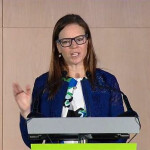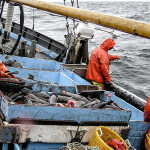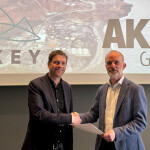Major salmon and trout producer Petuna, based in Tasmania, Australia, is increasing its production capacity after realizing a spike in demand from China. The company is also realizing steady demand from retailers and restaurants in North America, Japan and Singapore.
“Following the Chinese Premier’s visit to Tasmania, the Chinese understanding of Tasmania as a clean, green state within Australia has increased enormously. We have seen demand grow significantly over the last six months,” Petuna Chief Executive Mark Porter told SeafoodSource. In fact, since the Premier’s visit late last year, the number of inquiries from China buyers has tripled.
In addition, the increase in middle class consumers is fueling demand in many countries in Asia, according to Porter. “While our Ocean Trout commands a premium market position, the end user considers salmon as an affordable healthy addition to their weekly diet. We are seeing per-capita consumption increasing in our traditional domestic and North American markets as well.”
Petuna, a privately-owned company, produces more than 8,000 metric tons of salmon and trout and boasts more than AUD 100 million (USD 73.4 million, EUR 65.5 million) in annual sales. Because of increasing demand, the company recently developed two new lease areas and now owns several sites in Macquarie Harbour and in the north of Tasmania. Petuna also upgraded its processing plant in Devonport to handle increased volume.
While Petuna continues to increase production, “it is only at a rate which has minimal environmental impact,” Porter said. “Our average stocking densities of 7.5kg/cubic meter are indicative of this responsible expansion.”
To further minimize its environmental impact, Petuna recently commissioned two new freshwater recirculation systems at a cost of around AUD 15 million (USD 11 million, EUR 9.83 million). “These use less than five percent of the water when compared to traditional flow-through farms,” Porter said.
Porter expects to see additional demand from China and other countries after the producer recently became the first to obtain Global Aquaculture Alliance Best Aquaculture Practices (BAP) certification for two species – salmon and trout – at one facility.
“It is clear that our customers not only expect but demand that companies uphold a strong social and environmental license,” Porter said. “Best Aquaculture Practices requires farms to minimize any adverse environmental impact, but also to ensure strong community engagement and employee well-being.”
And the global demand for farmed seafood will not wane anytime soon, according to Porter. “With more than 50 percent of all seafood consumed now coming from aquaculture, I believe that sustainable fish farming provides a long-term addition to wild fishing. Aquaculture has the ability to supply a consistent product year-round.”






